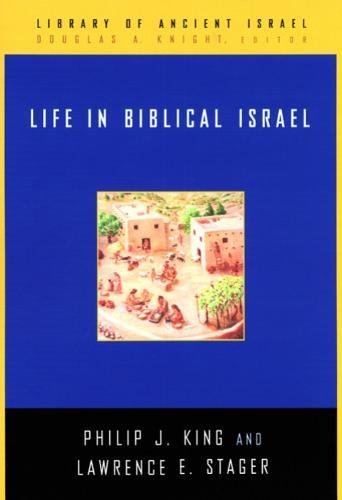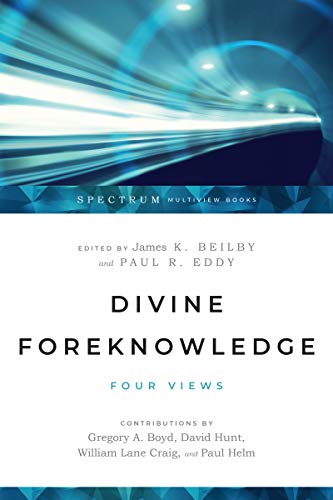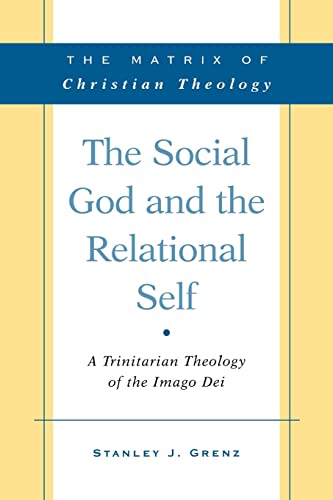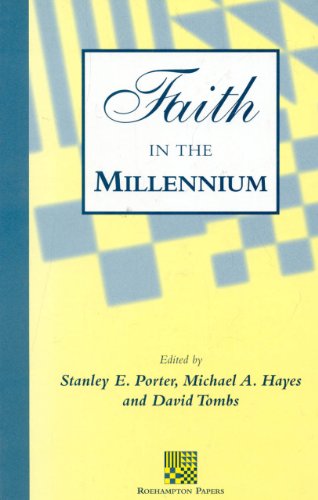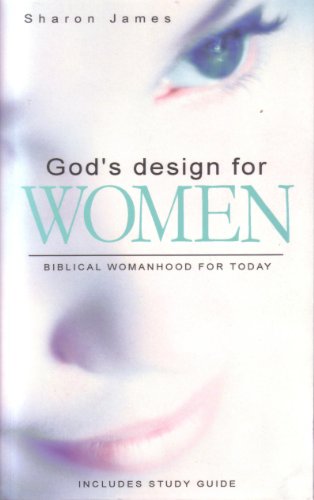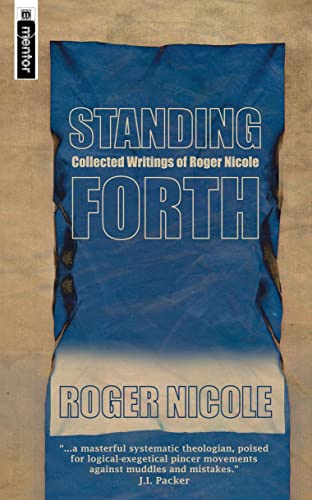LIFE IN BIBLICAL ISRAEL, (LIBRARY OF ANCIENT ISRAEL)
Written by Philip J. King and Lawrence E. Stager Reviewed By David L. BakerPhilip King (Professor of biblical studies) and Lawrence Stager (archaeologist) have combined their expertise to produce an attractive, readable and informative book on everyday life in OT Israel. An introduction on method is followed by studies of the Israelite house and household (architecture, family, meals, medicine), means of existence (farming, water sources, crafts, transport, trade), patrimonial kingdom (royal city, urban water systems, warfare), culture and expressive life (dress, music, dance, literacy, schools) and religious institutions (sacred sites, ritual objects, religious practices, death, afterlife).
The authors reject the view of some recent scholars that ‘biblical Israel’ was a fiction created after the exile, and make extensive use of biblical data alongside archaeological evidence to give a fascinating picture of what life was like in OT times. To do this they need to make assumptions concerning the periods represented by the different biblical documents. Some early poetry and the ancestral stories are dated to the 12th and 11th centuries, J to the 10th century, JE to the 9th century, D and the Deuteronomic History to the 7th and 6th centuries, P to the exilic period (but with many earlier traditions) and the Chronicler is post-exilic (but including some data even earlier than the Deuteronomic History). On these assumptions, most of the ‘lifeways’ expressed in the OT are considered to represent life as it was in Palestine during the Iron Age (1200–587/6BC).
The structure of Israelite society was based on patrimonial authority, with a three-tiered nesting of households:
- the basic unit was the bêt ab (‘father’s house’), a multiple-family household consisting of blood-relatives and women connected by marriage, descended from the same paterfamilias and Iiving in the same village or region, with its own land inheritance;
- at the level of state, the king was the paterfamilias, and his subjects were dependent on personal relationships and loyalty to him and received protection and succour in return, so that the king’s ‘house’ included the families and households of the whole kingdom; and
- YHWH was the supreme patrimonial lord and ultimate authority over the children of Israel.
The book follows this basic pattern, starting with aspects of life in the Israelite household, moving on to the affairs of the kingdom, and concluding with religious institutions.
On the whole the book shows the complementarity of biblical and archaeological data without overemphasising one at the expense of the other, though occasionally there are statements unsupported by evidence, e.g., ‘in the joint family genealogical relations can be demonstrated, but the “clan” is too large to prove that all are related by blood. At this level fictive genealogies enter in’ (39). No evidence is given for this claim, and it betrays ignorance of the crucial importance of genealogies in some societies. (For example, among the Batak peoples of North Sumatra, everyone knows their exact genealogical place in society, so there is little scope for creating fiction.)
From a technical point of view the book has a number of faults. The glossy paper makes it difficult to read in most lighting conditions, and occasionally the ink has penetrated to the other side. The list of abbreviations is incomplete (e.g. PPN and EB omitted). There is frequent duplication and inadequate cross-referencing when the same topic is dealt with under different headings. Examples of this are:
- pillared houses described at some length in chapter 2, and again in chapter 4;
- Gezer calendar explained on pages 87–88, then again on page 316 without reference to the illustration and fuller explanation earlier in the book;
- horses and camels discussed under ‘Animal husbandry’ and also ‘Transport’;
- water supply under ‘Water sources’ (ch. 3) and ‘Urban water systems’ (ch. 4);
Nevertheless this is a valuable book for teachers and preachers, and all students of the Bible.
David L. Baker
is the Deputy Warden and a Research Fellow at Tyndale House, Cambridge.


